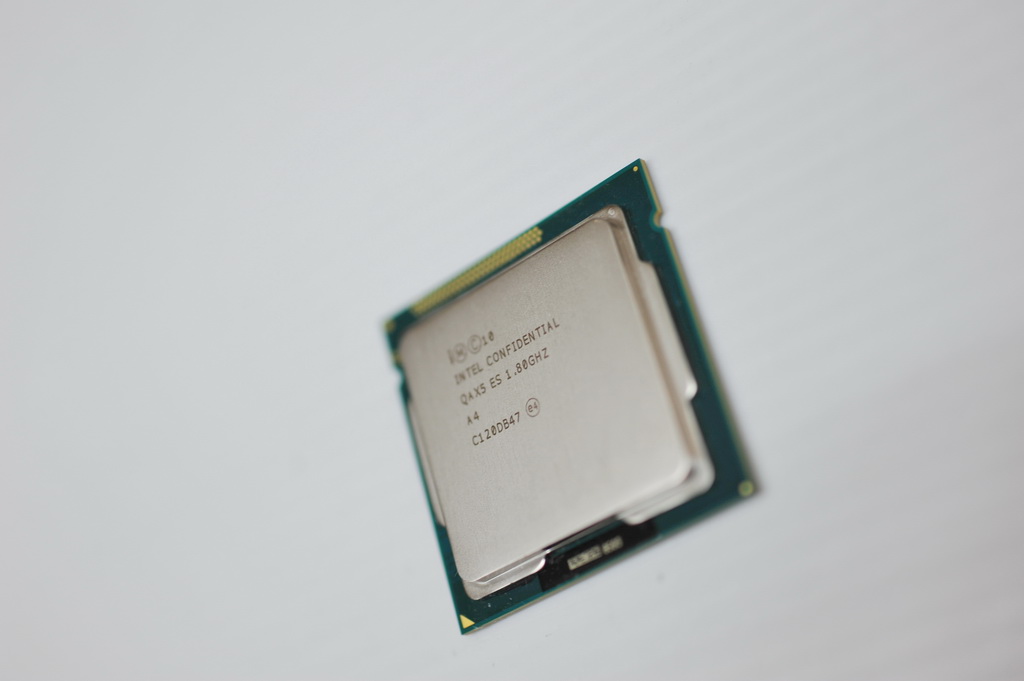PC Processor Sales Expected to Grow Just Just 1.6% in 2013
Market researchers do not believe that the market conditions for microprocessor makers will improve anytime soon.
Get Tom's Hardware's best news and in-depth reviews, straight to your inbox.
You are now subscribed
Your newsletter sign-up was successful
IDC's Shane Rau noted that processor revenue for mobile PCs, desktop PCs, and PC servers are forecast to grow 1.6 percent to $40.7 billion in 2013. Following 2.4 percent growth in 2012, the markets may further decline and the impacting "economic and technological inhibitors" will "continue through the first half of 2013".
The key problems are, according to Rau, the fact that "macroeconomic uncertainty has forced OEM and IT customers to reduce orders and focus on execution, and reduce expectations after the launch of Microsoft's Windows 8 operating system in late October", as well as delays in PC purchases caused by Windows 8. Rau also pointed to media tablets that negatively affect sales of low-end PCs.
"For vendors of microprocessors and other PC technologies, the future belongs to those who can best execute on a vision of what computing ultimately should be and how users assess the value to them," Rau said. "Vendors should strive for an increased perception of value so systems can be sold on their utility and not merely their price. Such a transformation requires time for assessment and education along the value chain. It also requires sustained investments in the PC ecosystem distinct from the investments going into the hot tablet ecosystem."
According to Rau, ARM will be able to take market share from Intel in its core markets, but its success will be very limited. IDC believes that ARM processors will capture a market share of 3.3 percent of mobile PC processors by 2016. In servers, ARM will hold 3.2 percent of the processor market by 2016, the market research firm projects.
Contact Us for News Tips, Corrections and Feedback
Get Tom's Hardware's best news and in-depth reviews, straight to your inbox.

Wolfgang Gruener is an experienced professional in digital strategy and content, specializing in web strategy, content architecture, user experience, and applying AI in content operations within the insurtech industry. His previous roles include Director, Digital Strategy and Content Experience at American Eagle, Managing Editor at TG Daily, and contributing to publications like Tom's Guide and Tom's Hardware.
-
Kryan just just -.-Reply
Reviewing your article ftw. Btw, what happened to that job posting (which I applied for) re the article reviewing and spell checking and stuff? Whoever got the job is doing great... -
deadlockedworld The clearly aren't counting tablets as PCs in this one. The tablet market will push the overall computing market up higher.Reply -
DjEaZy ... just ramp up the production of AMD APU's for ultrathin laptops... and or... offer windows 7 with a new computer...Reply -
icemunk Yes, because why would we upgrade for a measly 5-10% speed increase? We want the big gains back. Moore's law needs to make a comeback. I'm talking to you IntelReply -
More eyes on Intel, coming from a happy although flabbergasted owner of Core i7 920 since 2008. It's been 4 years, and there STILL is nothing viable to upgrade my CPU to?! It's a mess of your own making, Intel.Reply
-
Vestin What a sick world we live in, where people buying ADDITIONAL stuff is not enough, people buying MORE stuff than previously is not enough, they are expected to buy SO MUCH that the amount bough now compared to last year will be (substantially) higher than the amount bought last year compared to the one before that.Reply -
blubbey WhatAMessMore eyes on Intel, coming from a happy although flabbergasted owner of Core i7 920 since 2008. It's been 4 years, and there STILL is nothing viable to upgrade my CPU to?! It's a mess of your own making, Intel.They don't need to push that hard in terms of pure CPU performance. It's not like AMD is beating them or really that close in performance per GHz. Besides, Haswell will probably concentrate on graphics, power and from what I hear it'll be a good/great overclocker. Broadwell will be an even bigger jump on graphics and power and the year after Intel will probably be making awesome mobile CPU's.Reply -
fnh WhatAMessMore eyes on Intel, coming from a happy although flabbergasted owner of Core i7 920 since 2008. It's been 4 years, and there STILL is nothing viable to upgrade my CPU to?! It's a mess of your own making, Intel.Reply
Heck, I'm a Core 2 Duo (Wolfdale) user. My upgrade plan is to wait for Broadwell. That's as viable as it can get.
